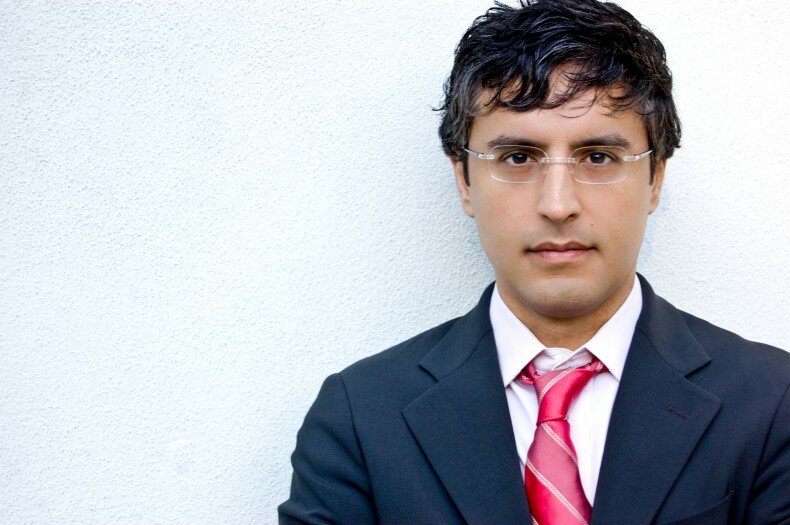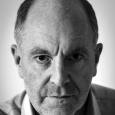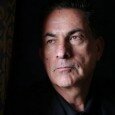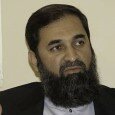By A Rahim Khan –
Pique’s Exclusive
Reza Aslan first-ever interview to any Pakistani publication
“I want to be clear, you’re a Muslim, so why did you write a book about the founder of Christianity?”
If the questions seem pointed, even a little blunt, forgetting that it sounds hopelessly obtuse, that is because it stems from a particular skepticism, even distrust that fails to be assuaged or reconciled. In 2013, Lauren Green of Fox News and host of the network’s Spirited Debate interviewed scholar and author, Reza Aslan, speaking to him about his book, Zealot: The Life and Times of Jesus of Nazareth.
Eschewing the usual ceremony of televised interviews, Green launches into her examination with the questions above, appearing bemused, even galled. Why had a Muslim written about Jesus Christ? Indeed, phrased like that it almost sounds as if the Muslim in question had no right to.
The initial shock, visible on Aslan’s face, passes quickly, as in rejoinder he offers his credentials, listing numerous degrees, a PhD, with a particular focus on Christianity and its history, stressing that his study of religion and indeed writing about it was how he made a living.
Unconvinced, Green presses on with the question, and an interview that would otherwise have been benign and routine would go on to enter the annals of broadcast bigotry. To say it was controversial would be an understatement and even for battle-scarred Fox, the interview proved to be one of its most embarrassing.
Unfortunately this would not be the last time for such an instance or for that matter for Aslan himself. Most recently, while being interviewed by CNN, Aslan was posed with similarly slanted questions that harked back to the infamy of Fox exposing a palpable Islamophobia that seems destined to inflate.
Both interviews, shared endlessly over social media, have propelled Aslan into the limelight and whether or not he agrees, has made him the face of modern Muslim discourse, inviting a fair share of right-wing caustic that derides him as a ‘Muslim apologist’. Of Iranian dissent, Aslan has previously written No God But God, about the origins of Islam and is presently a professor at the University of California, Riverside.
Speaking exclusively to Pique, Aslan talks about the rise of Islamophobia, his works and of course, the infamous interviews.
You seem to have become a viral hero, did you see yourself as a scholar and author becoming this type of public figure?
RA: Well, look, I’ve always wanted to take the conversations about religion and society that we academics have all the time and make them part of the popular, general conversation. So I am thrilled that we are having these conversations because they are very important to have but I have never tried to set myself up as some kind of a viral hero; I do want to be a public intellectual however and nothing makes me happier than to see the things that I am interested in talking about being talked about by everyone else.
From your recent interview alone, it appears as if there is a concerted effort to goad you, often inanely. Is this intentional? Or is there a genuine misunderstanding and confusion about Islam?
RA: Oh, I think that there’s not just a genuine misunderstanding and confusion about Islam in the American media, there is a deep and inherent anti-Muslim bias in the American media, which is understandable because the media is predicated on recording the extremes and you know, right now if you look at large parts of the Muslim world, particularly in the Middle East, there’s a lot of extremism to report about and so it’s sort of the base attitude, I think, for American media that Islam is inherently worse, violent, what have you than any other religion and this is frankly, what I think many journalists believe
Many of your interviews, the Fox one in particular, are in parts cringe worthy and incensing, and one almost feels uncomfortable for you, why continue with it? It seems that despite what you have to say, it is falling on deaf ears.
RA: Well, I think it’s important to communicate yourself as clearly as possible, not so much that the interviewer understands, but that the audience understands and the Fox News interview is a perfect example of it in that my decision to continue to express my opinion in a calm and rational way allows for people who normally take Fox’s view on an argument to realize the frank bigotry of that news organization. So it’s not that we are both talking to each other but that we are both talking to a much broader audience.
Again referring to the Fox interview, why is it that people find it hard to divorce your faith from your profession, do you think there is an inherent prejudice in play here?
RA: I think that’s a large part of it that for a lot of people they don’t understand that religion can be an academic enterprise and they simply see religion as nothing more than a personal faith experience. Therefore they think that a person’s religion is primary to anything else that he or she may do and on top of that of course because there is such intense anti-Muslim sentiment in the United States, anything, anything a Muslim does is suspect.
Lastly on the subject of interviews, following your CNN one, Chris Cuomo said that your “angry” tone in the interview was the kind of hostility that people associated with Islam, what would you say to this?
RA: Well, I think that’s an embarrassing statement on his part. It’s a statement that a lot of Americans are use to because we call it the ‘angry black man’ phenomenon where you treat a black person with intense racism and suspicion and when he questions that racism and suspicion, you declare him to be an angry black man who only confirms your racism and suspicion and he (Cuomo) was almost universally condemned for that silly statement.
You tend to be on most right-wing hit lists, do you enjoy this notoriety or is it just meant to be expected?
RA: I think Aristotle put I best that if you want to avoid criticism, say nothing, do nothing, be nothing so that criticism is just part and parcel of being a public intellectual and particularly when you’re talking about religion you’re going to be the subject of a lot of hatred and anger from a lot of different corners. It’s part of the job, I’m use to it.
This debate about Islam, its tenets, practices, believers etc has gone on for more than a decade, since September 11. One would think that conclusions would have been reached by now, but the debate rages on, why do you think this has persisted for so long, considering that the religion has been around for 1400 years.
RA: If you actually look at the polls, the anti-Muslim sentiment has gotten far, far worse in the past 10 years than it did during even after the aftermath of 9/11. I think that partly that has to do with the media, partly it has to do with a very well coordinated attempt by certain individuals and organizations to present Muslims as a threat to American society and livelihood and that’s been very successful. And part of it of course has to do with the reality that there is a real strain of radicalism and extremism within the Muslim world that is getting an enormous amount of attention and if the only thing you know about Islam is what you see on the TV, then of course you’re going to view it a particular way.
Also do you think Islamophobia is perhaps tolerated? Perhaps not as condemned as Anti-Semitism or racism?
RA: Oh for sure, in fact many people, like Sam Harris would say there’s no such thing as ‘Islamophobia’. A lot of people would say that the term itself is a way to get away from being able to criticize Islamic practices but it is a word to describe a feeling people have, a feeling of fear and bigotry towards an entire community of individuals and like another word we’ve had to invent like ‘anti-Semitism’ or even racism, it is a word for a very real expression.
And do you think ISIS, Al Qaeda and terrorism etc are being used as excuses to further fan the flames? Or then are they the primary cause?
RA: Well as a word itself, I think it’s indicative. It’s about fear of Muslims and fear is an emotional response, it’s not a rational response. It’s a response that occurs in the heart, not in the brain. And so if you were to think about ISIS or al-Qaeda in a rational, logical way you wouldn’t be Islamophobic because you’d understand that this is a tiny minority, an infinitesimal minority of individuals and that, as with any group you can’t judge the whole by its part but that’s not what’s happening here – it’s an emotional response, not a rational response. And so you could say that ISIS, al-Qaeda etc are the trigger for Islamophobia but not the explanations for it.
In your NY Times op-ed piece, you wrote – “This is especially true of Muslims, who often glibly dismiss those who commit acts of terror in the name of Islam as “not really Muslim.”” Don’t you think that these very terrorists and their acts are so far out of the norm of Islam that to an average Muslim, they appear almost alien and indeed “not really Muslim” and that it is not just a glib or perfunctory dismissal?
RA: I understand the sentiment among any community to dismiss extremists within their community as ‘not us’. I get why Muslims would look at the horrific actions of a group like ISIS and say ‘this is not Islam’ but here is an undeniable fact – a Muslim is whoever says he is a Muslim – that’s it. It doesn’t help anyone to say that’s not really Islam, they’re not really Muslim.
But by this very argument, don’t you think that somebody who doesn’t really know Islam wouldn’t then be able to differentiate between say a member of ISIS and a regular law abiding Muslim?
RA: The only differentiation is action. Violent actions should be condemned. Peaceful ones promoted. Islam doesn’t have a Pope, Islam doesn’t have a Vatican. No one gets to say who is and isn’t a Muslim. If a member if ISIS wants to call himself a Muslim and wants to say that he’s killing people in the name of Islam, it’s not enough to just simply say that he’s not a Muslim and that’s not what Islam preaches. We have to actually confront that interpretation, to react against it, to create a counter interpretation of it, to ignore it is dangerous.
One of the reviews of No God but God, said the book presented “a liberal and optimistic view of Islam”, would you agree with this? Was the book sugarcoating things? Or presenting them as they really were?
RA: I don’t know how to sugar coat something. I’m a religious historian and I write about religious history. There were just as many Muslims who had a problem with No God But God as Non-Muslims who had a problem with it. And frankly if you’ve angered everybody then you’ve probably done something right.
Regarding Zealot you said that the success of the book was because Christians were seeking interpretations free from institutional dogma, do you think that Islam is similarly caught up in this ‘institutional dogma’ and do you think Muslims are seeking their own interpretations of the religion?
RA: Absolutely, in fact I wrote about this in No God But God, it’s what I referred to as the ‘Islamic Reformation’ – the individualization of Islamic interpretation and this desire to interpret what Islam is for yourself as an individual is a very new phenomenon within Islam and its resulted both in peaceful, democratic interpretations of Islam as well as violent, non-democratic versions of Islam. That’s what happens when you allow individuals to define a faith for themselves.
Do you think that since the fall of the Ottoman Empire and the Caliphate, Muslims have been rudderless? And this lack of leadership or direction has possible spawned such a violent streak in the past century?
RA: I think what we refer to as ‘Islamic Extremism’ is a direct result of the colonial experience. It is a response to colonialism, to western European colonialism primarily in the Middle East and South Asia and that’s where it has its roots and it’s a very new phenomenon, barely 50 years old and certainly in the more unstable regions of the world, Saudi influence has resulted in this kind of extremist virus that has infected so many Muslims. That’s an important thing in that we have to look to the source of this problem much as we have to think about how to confront it. The truth is that the Caliphate had long since before the Ottoman Empire’s fall been made meaningless and held a purely symbolic position; one that most Muslims paid no heed to whatsoever. It’s not so much about the Caliphate as it was the Ottoman Empire being divided into individual nation states as a result of European colonialism. And so it’s the response to European colonialism and not the end of the Caliphate that has led to this extremist strain.
Many groups, here in Pakistan, Afghanistan and more extremist groups such as ISIL, have called for the reestablishment of the Caliphate. Do you think that if this were ever to happen, thing would change?
RA: No, as I said, the Caliphate hasn’t been a legitimate or significant institution for 500 years if not more. In fact with the end of the Ummayad Caliphate, there was very rarely only a single Caliph in the Muslim world. I think the Caliphate is a symbol for a sense of unity that hasn’t existed in the Ummah since the golden era and that longing for unity is something that is being filtered into this term, Caliphate. No, I don’t think the Caliphate will ever be reestablished and that doing so would be very meaningful. Because remember the Caliphate is a political office not a religious one, it’s never ever been a religious office, it’s never had religious authority. Recreating the Caliphate is not going to suddenly bring about some kind of religious unity in the Muslim world, it’s not going to happen.
![]() The writer is a journalist and art critic based in Islamabad
The writer is a journalist and art critic based in Islamabad































































































